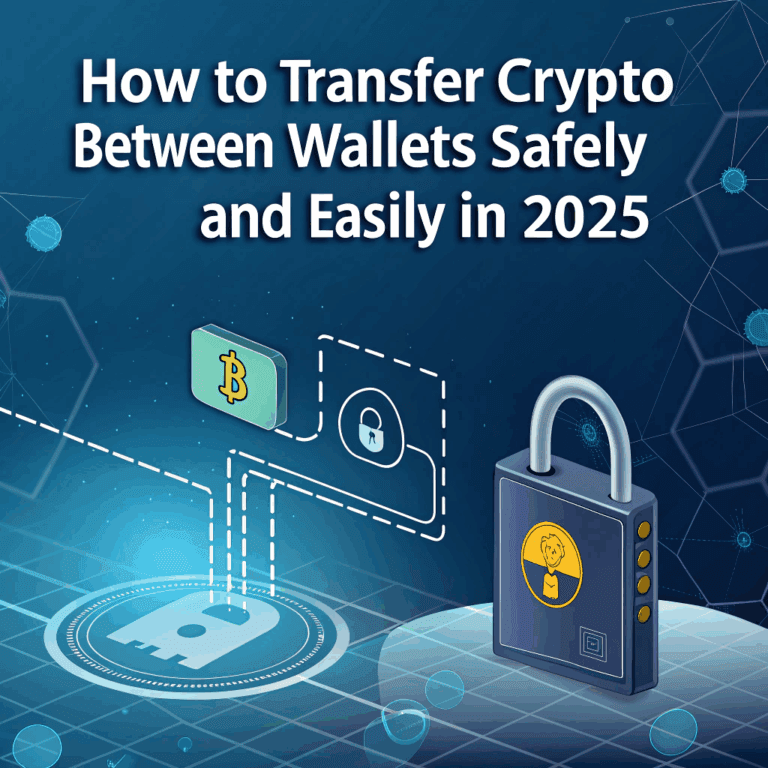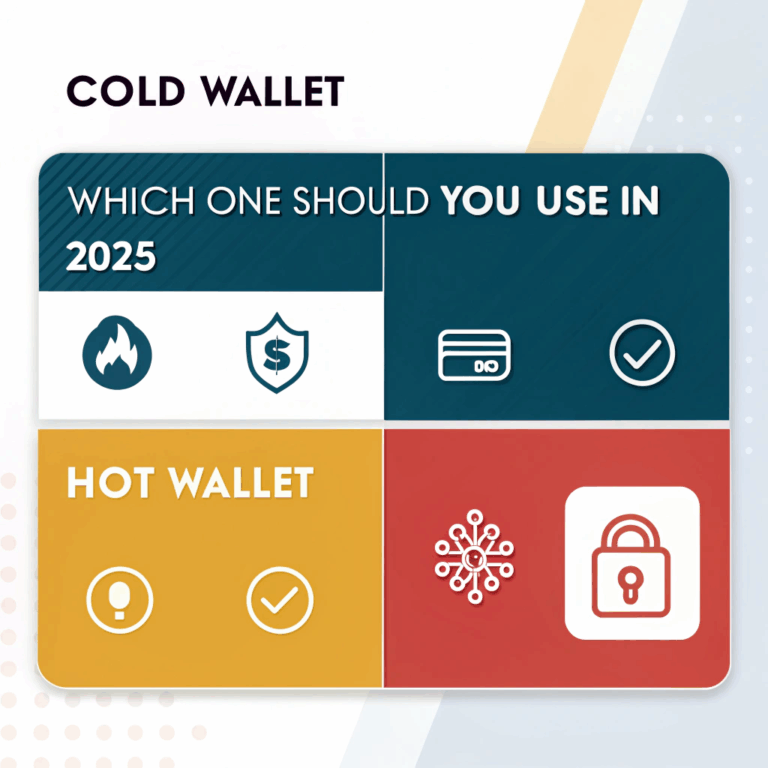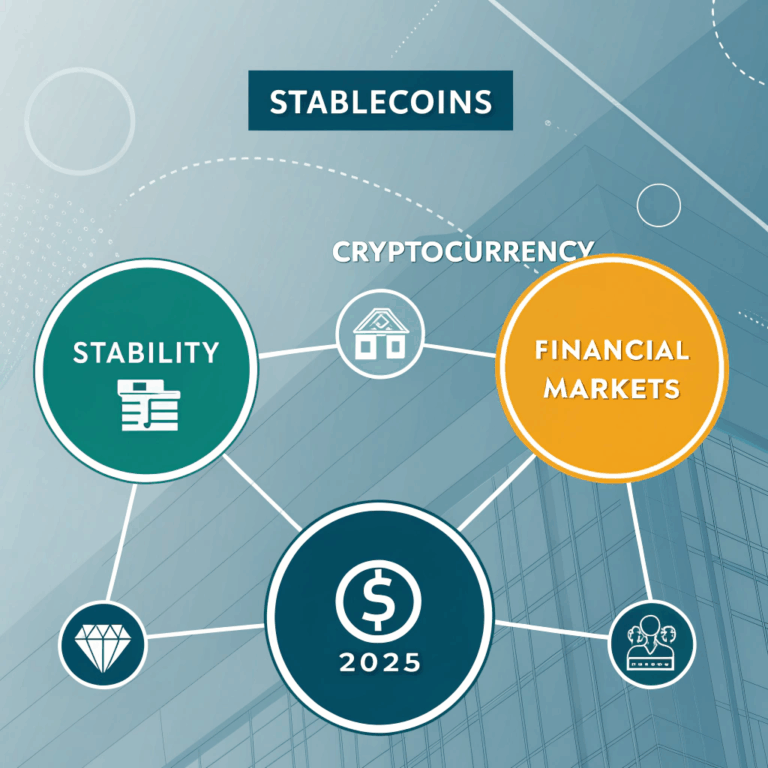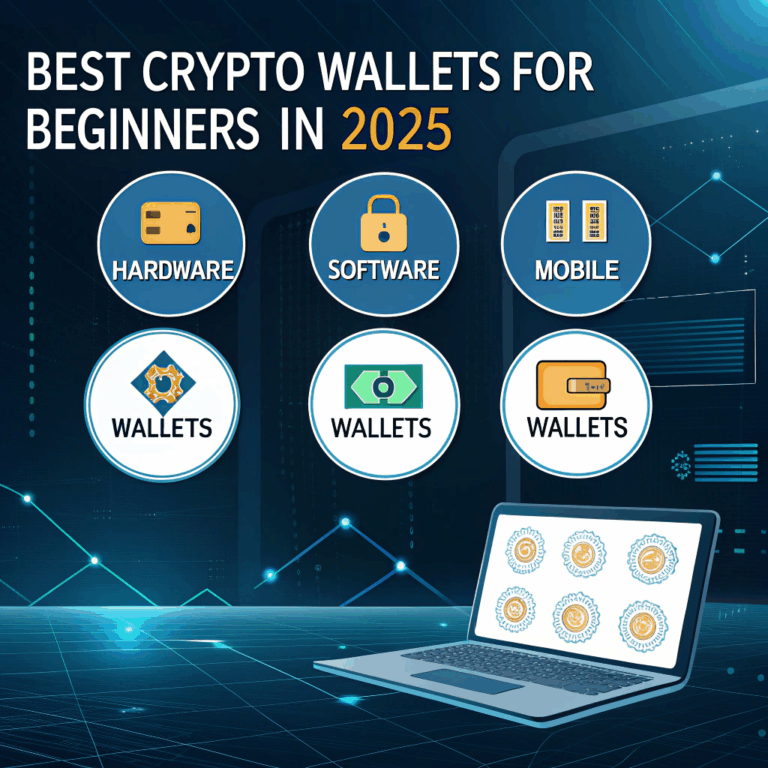What is a Smart Contract and How Does It Work? (2025 Guide)
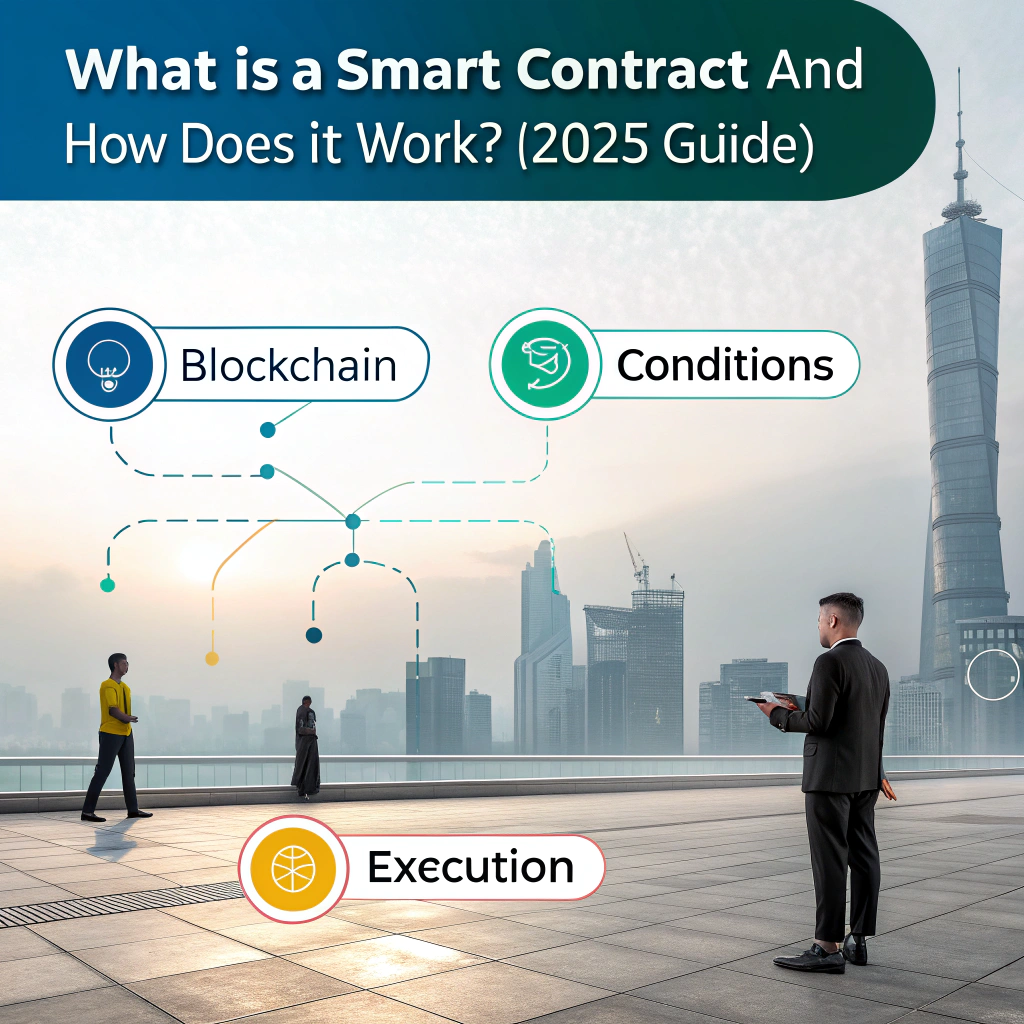
Introduction
Smart contracts are one of the most powerful technologies behind blockchain — but they’re often misunderstood. In 2025, smart contracts power everything from financial services and gaming to identity and real estate. This guide explains what they are, how they work, and why they matter.
What Is a Smart Contract?
A smart contract is a self-executing piece of code stored on a blockchain. It automatically enforces and executes an agreement once predefined conditions are met — without needing a middleman.
Think of it like a digital vending machine:
Insert crypto → conditions met → get the result (e.g., tokens, access, rights).
How Do Smart Contracts Work?
Smart contracts are:
- Written in code (e.g., Solidity for Ethereum)
- Deployed to a blockchain
- Triggered when users interact with them
Once deployed, a smart contract:
- Lives on the blockchain permanently
- Runs exactly as programmed
- Cannot be changed (immutable)
Key Features of Smart Contracts
- Autonomous: No third-party intervention required
- Immutable: Cannot be altered once deployed
- Transparent: Anyone can audit the code
- Trustless: You don’t need to trust a person — trust the code
- Permissionless: Anyone can interact with it (unless restricted)
Where Are Smart Contracts Used?
- Decentralized Finance (DeFi): Lending, borrowing, trading
- NFTs: Minting, royalties, sales automation
- Gaming: Item ownership, in-game rewards
- Supply Chain: Tracking goods and automating payments
- Identity: Self-sovereign ID systems
- Voting: Secure and transparent governance
Benefits of Smart Contracts
- Efficiency: Eliminate paperwork and delays
- Security: Run on decentralized networks, hard to tamper
- Cost-Effective: No need for intermediaries like banks or notaries
- Accuracy: Automates processes with clear rules
- Global Access: Anyone with internet can use them
Risks and Limitations
- Code bugs: Vulnerabilities can lead to hacks
- No “undo” button: Once deployed, contracts are hard to change
- Complexity: Not beginner-friendly to develop
- Legal uncertainty: Still evolving regulations worldwide
- Gas fees: Interacting with contracts can be costly on some blockchains
Examples of Smart Contract Use Cases in 2025
| Industry | Use Case Example |
|---|---|
| Finance (DeFi) | Lending/borrowing via Aave or Compound |
| Real Estate | Tokenized ownership, auto-payments |
| Gaming | On-chain game logic and NFTs (e.g., Axie) |
| Logistics | Shipment tracking with milestone triggers |
| Legal | Automated escrow and contract execution |
| Insurance | Automatic claim payouts based on real-world data |
Popular Platforms for Smart Contracts
- Ethereum: The most widely used and battle-tested platform
- Solana: High-speed and low-cost transactions
- BNB Chain: Popular for dApps and DeFi
- Polygon: Layer 2 scaling for Ethereum
- Avalanche: Fast finality and eco-friendly
- Cardano & Algorand: Focused on academic and secure smart contract design
Can Anyone Create a Smart Contract?
Yes — but it requires:
- Knowledge of coding (e.g., Solidity, Rust, Vyper)
- Understanding of blockchain principles
- Tools like Remix, Truffle, Hardhat, or Foundry
You can also use no-code platforms like:
- Thirdweb
- Moralis
- OpenZeppelin templates
- Buildspace or Alchemy
Smart Contracts vs. Traditional Contracts
| Feature | Smart Contract | Traditional Contract |
|---|---|---|
| Execution | Automatic via code | Manual, needs enforcement |
| Middleman Required | No | Often (lawyers, banks) |
| Speed | Instant (block confirmation) | Days or weeks |
| Cost | Low (after deployment) | High (fees, legal costs) |
| Legal Recognition | Still developing | Fully recognized |
FAQ
Are smart contracts legally binding?
It depends on your country. In 2025, many jurisdictions are working to recognize them.
Can a smart contract be hacked?
Not easily — but if there’s a bug in the code, yes. Always use audited contracts.
Can smart contracts interact with real-world data?
Yes — through oracles like Chainlink that feed external data to smart contracts.
Can I change a smart contract after deployment?
Usually not. You’d need to deploy a new version or use upgradeable contract patterns.
Conclusion
Smart contracts are the building blocks of decentralized applications and digital automation. By removing middlemen and executing code on blockchain networks, they bring speed, trust, and transparency to industries far beyond crypto. In 2025, they’re no longer just a trend — they’re infrastructure.
